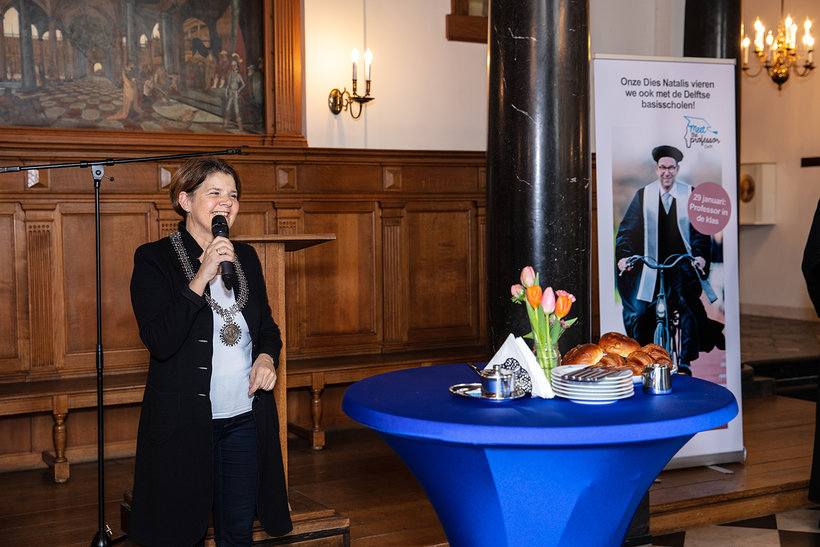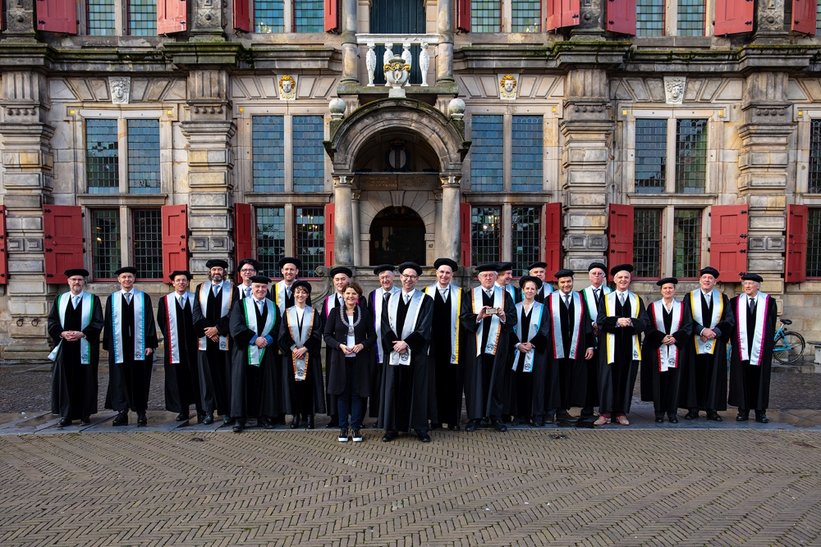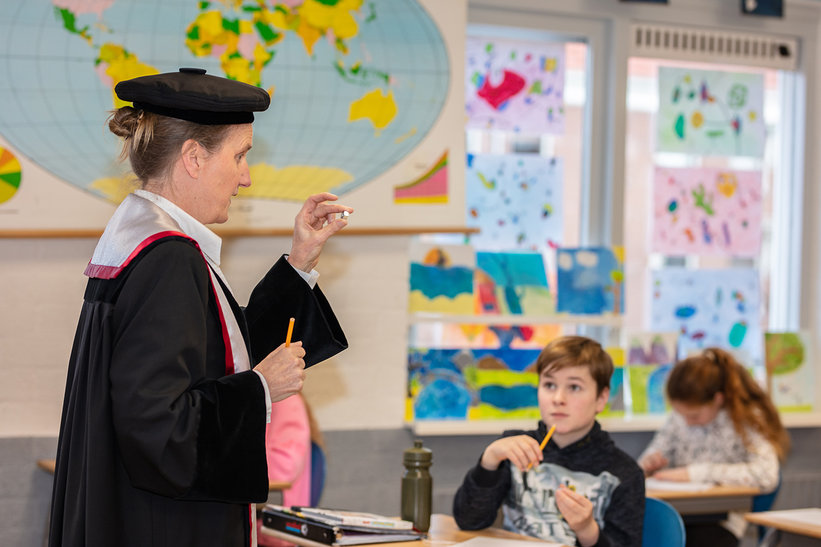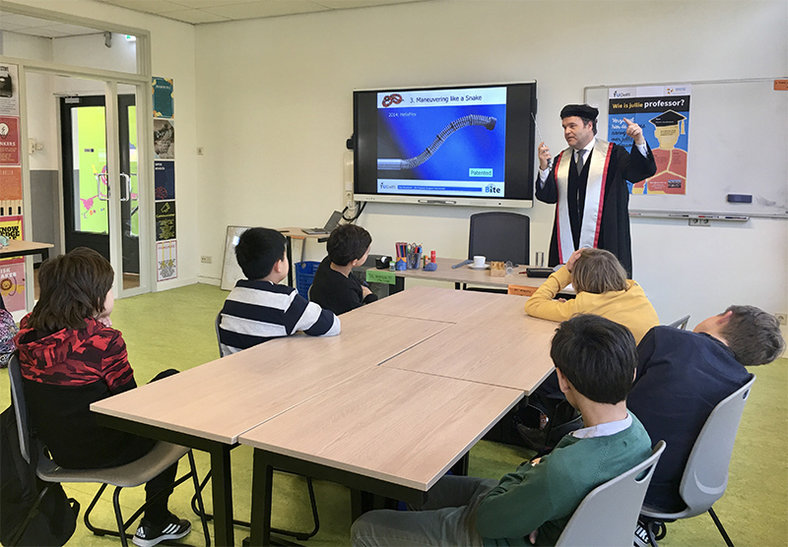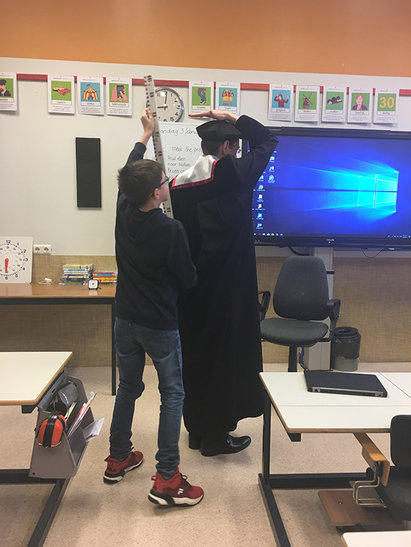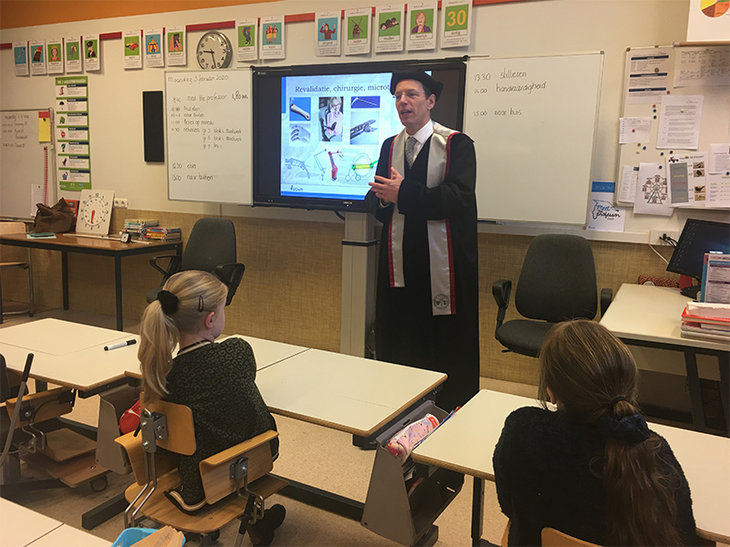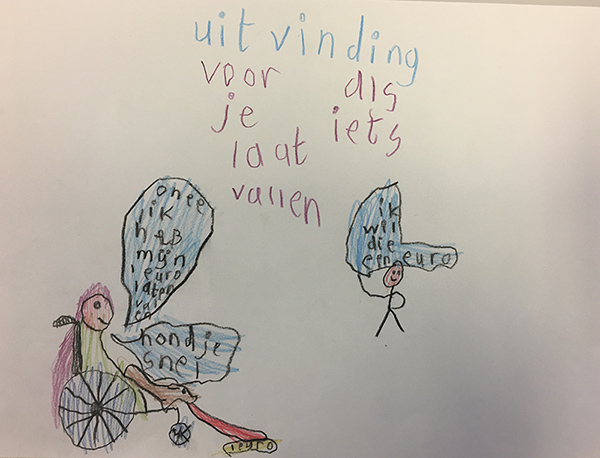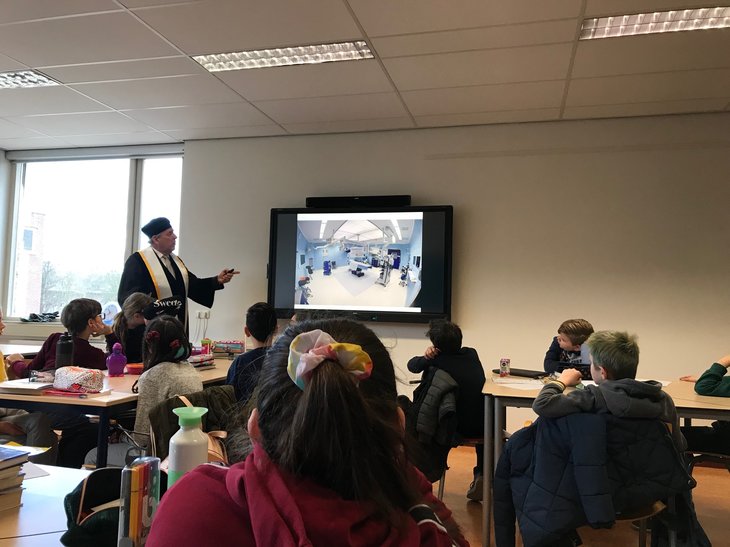‘Professor, will you please come again some time?’
What if a robot shuts down during an operation? How long do you sleep every night? What kind of a suit is that you’re wearing? And what’s your biggest dream? A group of ten to twelve-year-old students from different primary schools in Delft listened with rapt attention to ‘their guest lecturer’, which was followed by a barrage of questions. 3mE-professors Jenny Dankelman, Paul Breedveld, Just Herder and Maarten van der Elst each visited a primary school class in the context of the unique ‘Meet the professor’ event and introduced mechanical engineering in a special way to the students.
Jenny Dankelman told the pupils that as a mechanical engineer and expert in the area of minimally invasive surgery she develops instruments that are used to perform operations through extremely small openings – or, as she likes to say, instruments that make it possible to ‘operate through a letterbox’. Read more about her guest lecture in the Delta article (in Dutch) ‘In toga voor de klas’.
Jenny Dankelman
‘I don’t think that the first thing that comes to a student’s mind when they think of studying mechanical engineering is surgical instruments. I’m wanted to show them that mechanical engineers are also important for the medical field.’
Maarten van der Elst, surgeon and professor of clinical patient safety and efficiency at 3mE, visited ‘Het Mozaik’ primary school in Delft. This was a special occasion for the students, who were introduced to someone who is both a professor and a surgeon. Van der Elst demonstrated how technology contributes to safety and efficiently in healthcare. As a doctor, he works closely with TU Delft to develop solutions for clinical problems with the help of technology.
Maarten van der Elst
‘The guest lecture was very inspiring. The students asked many unexpected questions. I really had to laugh when a student, who was shown a photo of the most advanced equipment in the operating theatre, said “Yuck, turn it off, I’m going to throw up.” Isn’t that hilarious? I’m definitely doing this again next time.’
Paul Breedveld, professor of medical instruments and bio-inspired technology, introduced bio-inspired technology to students at an international primary school. He was immediately confronted with the question: ‘Why do people make robots that look like humans?’
‘Good question!’ Breedveld replied. ‘We have humans, so why make robot-humans? I turn it around: I use nature, humans and animals to make instruments. I call it inspiration, not imitation.’
Paul Breedveld
‘It was a lot of fun to give a guest lecture. It was interesting to see what the discussions were about, especially when it came to the names of the various instruments – some children had a few really good ideas. One girl took all kinds of notes and made sketches on small pieces of paper, which she gave to me afterwards. It was a post-it with a drawing of our MemoFlex. Really amusing!’
Just Herder, professor of interactive mechanisms and mechatronics, attended a class at the Mytylschool in Delft and was immediately asked: ‘Are you going to give us a really difficult mathematics sum now?’ Subsequently the student actually ‘measured’ the professor with a large measuring stick (see photo). Just turned out to be 1.80 metres tall and wrote that on the blackboard.
Herder explained that mechanical instruments allow you to do things that people can’t do. Cutting, or lifting heavy objects. An excavator, for example, can dig up a lot more sand than a human. What he wants to do as a mechanical engineer is make life easier. And technology makes that possible. ‘Robots are becoming more and more of a reality.’ In car factories, you weren’t let near those dangerous machines, but increasingly people are working with robots, and nowadays we even have robots stuck to our bodies.
Then he talked about prostheses. He had the children tie their shoelaces with one hand. Which didn’t work, of course. So for those who have a hand that doesn’t work, it’s great to have a prosthesis to help you out.
A child called out: ‘I once saw someone on TV who baked a cake with his feet.’ Finally, Herder showed the children in a group how to make a prosthesis themselves. The students, who also have to deal with a physical limitation, embraced the task enthusiastically.
Just Herder‘The children came up with the most amazing designs. The best one? A robot dog with a long tongue for picking up things if you’re in a wheelchair. Brilliant!’
‘Meet the professor’ is an initiative of WIJstad and the wetenschapsknooppunt. During this event, 22 professors from TU Delft visited ten to twelve-year-old students at primary schools in Delft. Read the general report from TU Delft here.
